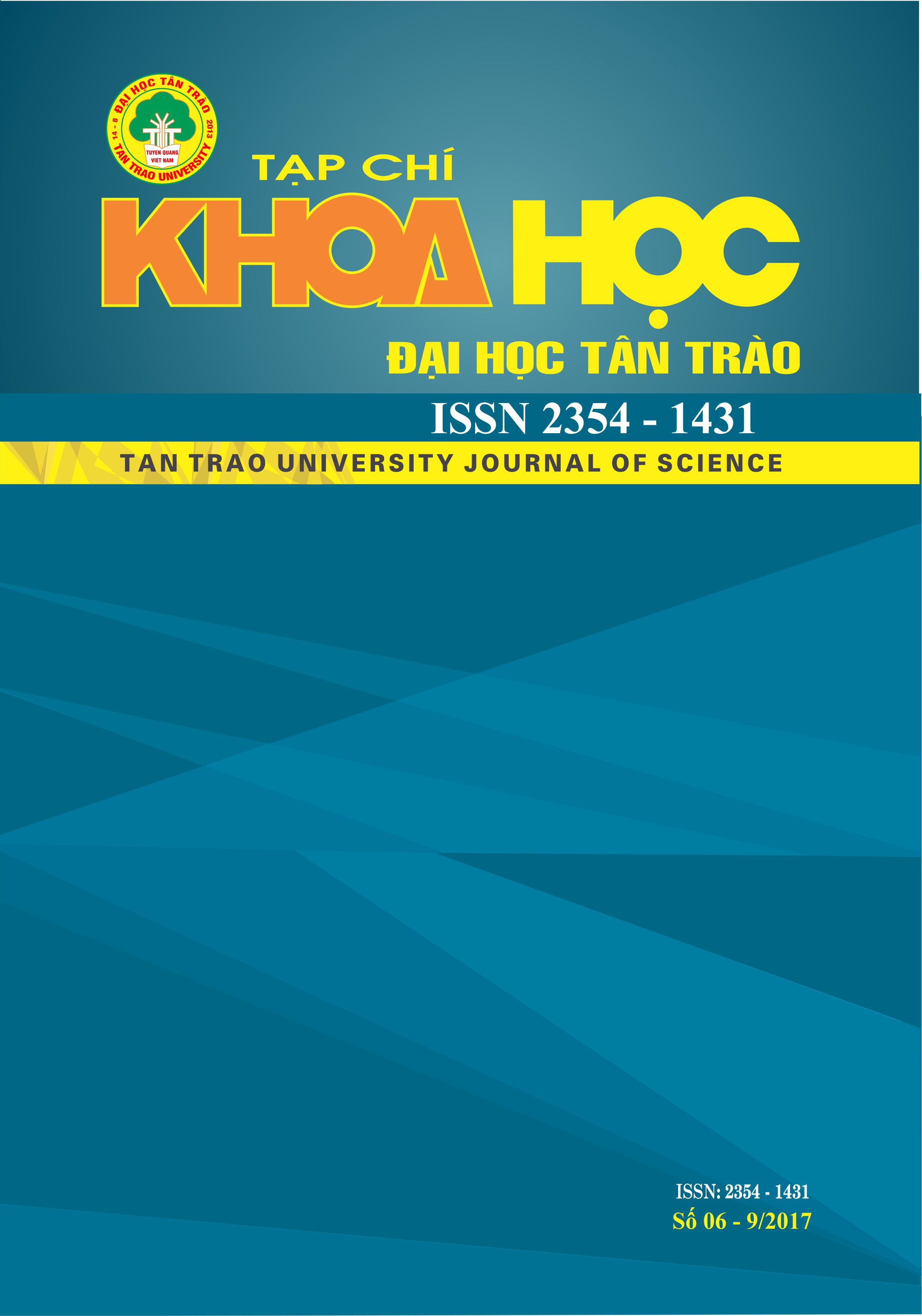Mẫu người nữ đoan chính trong Truyền kỳ mạn lục của Nguyễn Dữ
DOI:
https://doi.org/10.51453/2354-1431/2017/166Từ khóa:
Truyen ky man luc;Nguyen Du; traditional women; story of traditional woman in Khoai Chau; story of traditional woman in Nam Xuong.Tóm tắt
In Truyen ky man luc, Nguyen Dữ has spent 11/20 stories about women, Including 08/11 stories, the woman is the protagonist, the center of the work. From the standard reference system of Confucian ethics and traditional culture of the nation, we realize that there are only two cases:
Nhi Khanh (in the Story of traditional woman in Khoai Chau) and Vu Thi Thiet (in the Story of traditional woman in Nam Xuong) meets all the standard criteria of the main ladies. The essay will focus on these two characters, from which to come up with an account of the attitudes and
messages of the writer's thought about this women.
Tải xuống
Tài liệu tham khảo
1. Cù Hựu - Nguyễn Dữ (1999), Tiễn đăng tân thoại - Truyền kỳ mạn lục, Phạm Tú Châu, Trúc Khê Ngô Văn Triện dịch, Trần Thị Băng Thanh giới thiệu và chỉnh lý, Nxb Văn học, Hà Nội;
2. Toàn Huệ Khanh (2004), Nghiên cứu so sánh tiểu thuyết truyền kỳ Hàn Quốc - trung Quốc - Việt Nam thông qua Kim Ngao tân thoại, Tiễn đăng tân thoại, Truyền kỳ mạn lục, Nxb Đại học Quốc gia Hà Nội, Hà Nội;
3. Bùi Duy Tân (1999), “Truyền kỳ mạn lục, một thành tựu của truyện ký văn học viết bằng chữ Hán”, Khảo và luận một số tác gia tác phẩm văn học trung đại Việt Nam, tập 1, Nxb Giáo dục, Hà Nội, tr.372-408;
4. Lê Văn Tấn (2015), “Số phận người phụ nữ trong Truyền kỳ mạn lục của Nguyễn Dữ: Nghiên cứu trường hợp Vũ Thị Thiết và Nhị Khanh”, Tạp chí Nhân lực Khoa học xã hội, Học viện Khoa học xã hội, số 1(20), tr.94-99;
5. Vũ Thanh (2007), “Thể loại truyện kỳ ảo Việt Nam thời trung đại - quá trình nảy sinh và phát triển đến đỉnh điểm”, Văn học Việt Nam thế kỷ X-XIX - Những vấn đề lý luận và lịch sử, Trần Ngọc Vương chủ biên, Nxb Giáo dục, Hà Nội.
Tải xuống
Đã Xuất bản
Cách trích dẫn
Số
Chuyên mục
Giấy phép

Tác phẩm này được cấp phép theo Giấy phép Quốc tế Creative Commons Attribution-ShareAlike 4.0 .
Bài báo được xuất bản ở Tạp chí Khoa học Đại học Tân Trào được cấp phép theo giấy phép Ghi công - Chia sẻ tương tự 4.0 Quốc tế (CC BY-SA). Theo đó, các tác giả khác có thể sao chép, chuyển đổi hay phân phối lại các bài báo này với mục đích hợp pháp trên mọi phương tiện, với điều kiện họ trích dẫn tác giả, Tạp chí Khoa học Đại học Tân Trào và đường link đến bản quyền; nêu rõ các thay đổi đã thực hiện và các nghiên cứu đăng lại được tiến hành theo cùng một bản quyền.
Bản quyền bài báo thuộc về các tác giả, không hạn chế số lượng. Tạp chí Khoa học Tân Trào được cấp giấy phép không độc quyền để xuất bản bài báo với tư cách nhà xuất bản nguồn, kèm theo quyền thương mại để in các bài báo cung cấp cho các thư viện và cá nhân.
Mặc dù các điều khoản của giấy phép CC BY-SA không dành cho các tác giả (với tư cách là người giữ bản quyền của bài báo, họ không bị hạn chế về quyền hạn), khi gửi bài tới Tạp chí Khoa học Đại học Tân Trào, tác giả cần đáp ứng quyền của độc giả, và cần cấp quyền cho bên thứ 3 sử dụng bài báo của họ trong phạm vi của giấy phép.






